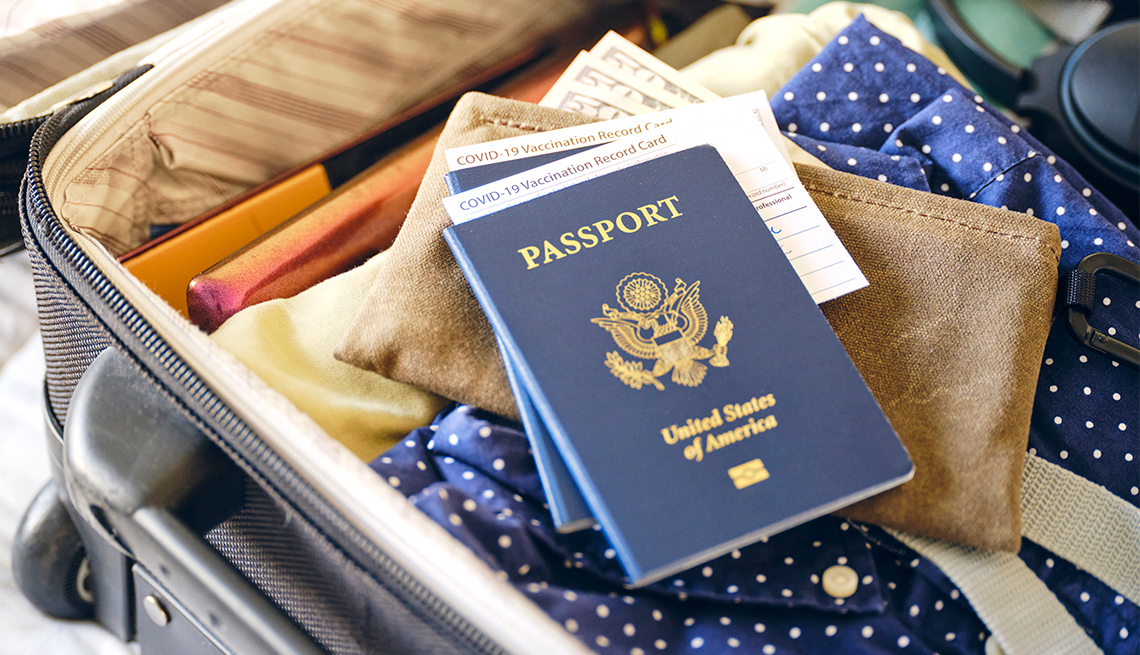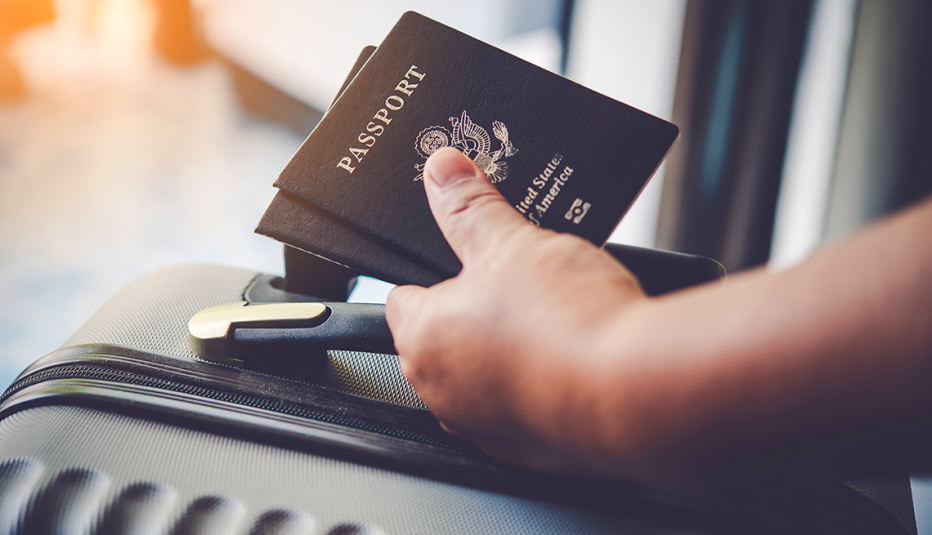If you have private insurance or buy special travel insurance, you don’t need to print the entire policy, but make sure you carry a copy of your insurance card and know where to find the policy on a website or app. “That’s absolutely essential to have, because many hospitals overseas, especially private hospitals, may not take you [without proof of insurance],” Freedman says.
Write down and email yourself the policy number and your insurer’s contact information. Your insurer likely can provide a number you can call when traveling to get guidance on handling a health issue and advice on filing a claim when you return (you may need to pay for medication out of pocket and then file a claim when you return home).
4. COVID-19 vaccination card
Most travel restrictions within the U.S. and other countries have all but disappeared. But some destinations, such as the Turks and Caicos, and Ghana, still require proof of vaccination against COVID-19.
While most cruise lines have ended their vaccination and testing requirements, a few still require them. Passengers on Tauck, Aurora Expeditions and giant Viking Cruises’ ocean, river and expedition voyages must be vaccinated against COVID-19 and may have to show proof to sail. Regardless of cruise line policies, passengers may have to meet different regulations to visit certain countries, such as Australia and Brazil, on their itinerary.
Since rules and regulations can change quickly, double check before you travel and carry a paper and digital vaccination record for international travel, Fazendin says. Colombia, for example, may not accept a photograph of your vaccination card. Some apps, including those offered by Apple, CLEAR, IBM and SMART, help users manage all their health information.
5. Proof of other vaccinations
International travelers may want to carry the yellow paper card (no digital version exists) recording the vaccinations they’ve had — for hepatitis, typhoid or yellow fever, for example — that are recommended in certain countries. The “Destinations” page on the Centers for Disease Control and Prevention’s (CDC) website provides recommended vaccinations and health notices by country.
You usually don’t have to show proof of those vaccinations, except for certain diseases in certain countries. Tanzania, for instance, requires proof of vaccination for yellow fever.
6. COVID-19 test results
Most countries and cruise lines no longer require negative COVID-19 test results, but some still do, including Brazil and the Philippines, especially for unvaccinated travelers.
Showing an image or email is usually sufficient, says Keyes, though he recommends carrying a print copy as a backup. “Let’s say you’re taking a taxi to the airport and you forget to charge your phone and can’t access email or your photos,” he says. “I’d rather have it just in case.”
Other tips for safe travel:
- Consider bringing extra medication, in case your trip gets delayed. If you’re flying, pack all prescription meds in your carry-on bag instead of your checked luggage.
- Consult the U.S. Department of State, which may offer travelers warnings on related issues, like crime. See a color-coded map with travel advisories.
- Enroll in the State Department’s Smart Traveler Enrollment Program, or STEP, which allows U.S. citizens and nationals traveling abroad to enroll their trip with the nearest U.S. Embassy or consulate. Benefits include receiving safety information about a destination and the embassy’s ability to reach you in an emergency.
4 Ways to Protect Personal Data When Traveling
Editor's note: This article was originally published on March 11, 2022. It has been updated to reflect new information.






































































